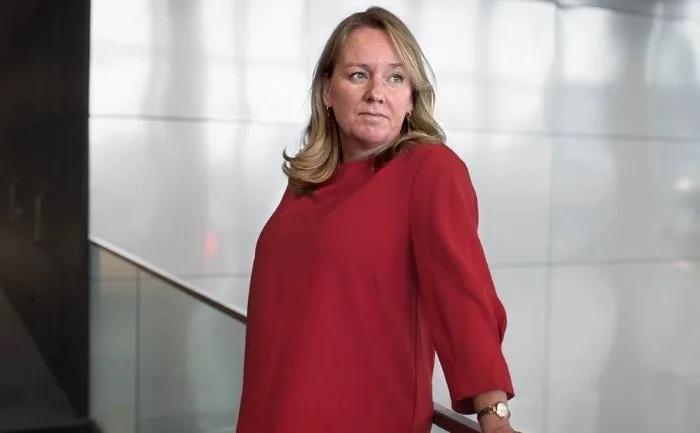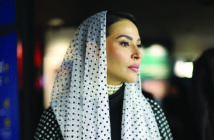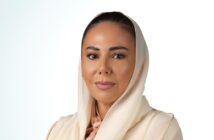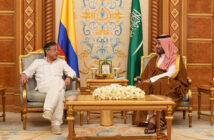Discussion with Ambassador of the Netherlands H.E. Janet Alberda
What would you consider and highlight as the most recent achievements in diplomacy? Where do you see the potential for growth in Saudi-Dutch relations?
The Netherlands and Saudi Arabia have a long-standing relationship, with the Netherlands establishing a first diplomatic mission in Jeddah in 1872. I am really happy that our relationship has further consolidated, with a visit of the Dutch Minister of Foreign Affairs Hanke Bruins Slot in January but most notably, a historic visit of Dutch Prime Minister Mark Rutte in February of this year who held meetings with HRH Crown Prince Mohamed bin Salman. This was the first visit by a Dutch Prime Minister to Saudi Arabia in 37 years, so I consider that a great achievement. These high-profile visits, next to many incoming and outgoing political and economic delegations, demonstrate the growing interest between Saudi Arabia and the Netherlands, as well as the increasing cooperation between our countries.
How does Saudi-Dutch cooperation contribute to European, Gulf, and Middle Eastern cooperation?
As the Netherlands and Saudi Arabia are founding members of the European Union (EU) and the Gulf Cooperation Council (GCC), respectively, Saudi-Dutch cooperation in turn has beneficial effects on cooperation between Europe, the Gulf and the Middle East. In the EU, the Netherlands has been an active supporter of the EU-GCC strategic partnership, which was signed in May 2022. We anticipate further engagement in a range of strategic relations where our interests align, and you will not be surprised that these are in areas where we have a strategic advantage such as on the nexus between water, energy & food.
One of the areas of Saudi-Dutch cooperation that will contribute to more regional cooperation is energy security and energy transitions, including renewable energy, energy efficiency, and clean hydrogen. The Netherlands has several world-class ports that can transport, store and distribute the clean hydrogen produced in and by Saudi Arabia to large industry off-takers in Europe. HRH Prince Abdulaziz bin Salman, Minister of Energy, also referred to the Port of Rotterdam as the gateway to Europe for KSA-hydrogen when he attended the World Hydrogen Summit in Rotterdam in 2023.

Leading international professionals, including Dutch specialists, have worked with the Saudis in recent years to realize the Saudi Vision 2030. What do you think is the added value of Vision 2030 for the global community, beyond its contribution to the Kingdom?
Vision 2030, next to its impact on Saudi Arabia, obviously has an added value to the global community. In terms of so many issues, think for example of energy transition, the diversification of the Saudi economy or the independency of importing goods. But also, in the field of human rights-initiated reforms on women’s rights will have the potential to serve as a catalyst for broader societal changes that will contribute to greater gender equality and societal openness, resulting in a more inclusive and tolerant environment. Additionally, improvements in education and healthcare within Saudi Arabia can also set the tone for improvement of quality of life elsewhere. All of the above are for example important for achieving the Sustainable Development Goals (SDG), goals that we both equally adhere to.
What makes Saudi Arabia special to you? And why is this country important to the Gulf region and the Middle East?
I have always had an affinity with the Middle East and the Gulf region. As an Arabist, I was taught at university about the old and historical ties between our two countries, and the exchanges between scholars on, for example, the Islam and the culture of this part of the world. I also had the chance to work in Egypt from 1994 to 1996 – prior to my entry into diplomacy – and during my time there became increasingly interested in serving on the other side of the Red Sea.
Saudi Arabia holds much importance in the region Obviously, as the Custodian of the two Holy Cities of Mecca and Medina, or being host to important regional organizations like the Organisation of Islamic Cooperation (OIC), the GCC, or the Islamic Development Bank and the Muslim World League. But also, as a regional leader, a G20 country and for the Netherlands, the largest economy in the region.
In your opinion, what will make Dutch buy tickets to Saudi Arabia, and what will Saudis discover in the Netherlands – something completely new and unadvertised?
The Dutch are a people who enjoy exploring. As Saudi Arabia has only recently been opening up, there is much potential for Dutch tourists to come here to experience the nature, hospitality and culture. One main hurdle that is currently holding Dutch tourists back is the high price of travelling to Saudi Arabia. If these were to be lowered, I believe that more tourists would come. On top of that, major international events will also draw Dutch tourists. Events like the Riyadh Expo 2030 and the World Cup 2034 would put Saudi Arabia on the tourism map.
The Netherlands has long been a popular destination for Saudis, with the likes of Amsterdam and Keukenhof. However, there is much more to discover. The Dutch are renowned for their forward-thinking approach and commitment to innovation. Cities like Eindhoven host a wide array of innovative and sustainable architecture. Reaching many of these destinations can also easily be done sustainably, as the public transport system virtually reaches every corner of the country.
What did you like most about the Diplomatic Quarter concept and what would you improve?
As you may know, the Netherlands is very much a cycling country. The design of the DQ allows cycling to be done easily, bringing something we cherish in the Netherlands to Saudi Arabia. Despite its compact size, the DQ offers a diverse range of amenities, including social hubs such as Kindy Plaza and Oud Square, as well as numerous green spaces, including parks and a circa 16-kilometre walking trail. Furthermore, the presence of most embassies in the DQ facilitates meetings with counterparts.
While it can become comfortable to live in the DQ for one, it can also detach one from the rest of Saudi Arabia. It is important to know the country one lives in, and for this, it is so essential to go out of the DQ and see the changes for oneself. As for improvements: I witnessed many building construction and building noises of a big mall in front of our Embassy for two years but have never seen it come to live yet – that is unfortunate – but I hope my successor will and that there will be ample of focus on reducing traffic (or make sure that traffic control is in place).




